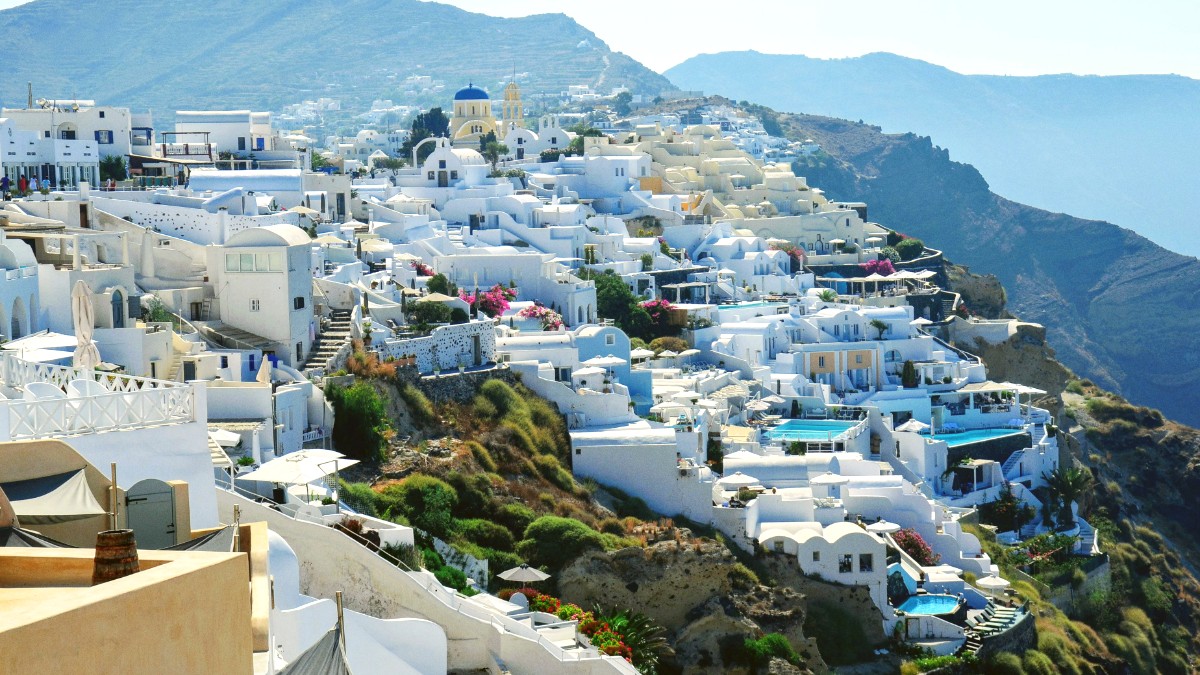
Greece
Santorini's caldera and volcanic islets are areas of significant geological importance and natural beauty, protected to preserve their unique ecosystems.
Santorini faces challenges in waste management from high tourist volumes. Minimize single-use plastics and dispose of trash properly.
Water is a precious resource on Santorini, with much of it coming from energy-intensive desalination. Consider water usage mindfully.
Make choices that support the island's environmental well-being.
Consider offsetting your flight emissions through reputable carbon offset programs. These programs invest in projects that reduce greenhouse gases.
Seek hotels and tour operators demonstrating a commitment to sustainable practices.
Choose boat tours that adhere to environmental guidelines, with proper waste disposal and respect for marine life.
Small actions from visitors collectively safeguard the island.
Look for outdoor gear from brands committed to sustainability, and reusable products.
Patagonia (Sustainable Outdoor Gear)Find reusable items to minimize your waste during travel and beyond.
Package Free Shop (Reusable Products)By making conscious environmental choices, visitors contribute to the preservation of Santorini’s unique natural beauty for future generations.
Support local artisans, traditional crafts, and family-run businesses that uphold Santorinian culture and heritage.
Learning a few basic Greek phrases leaves a positive impression. Be polite and patient, as Greeks are generally hospitable.
Your choices as a traveler directly influence the local economy.
Seek out and support businesses in less-visited traditional villages to distribute economic benefits beyond main tourist hubs.
Purchase souvenirs and local products directly from local producers or small independent shops. This makes for fair pricing and directly assists the local economy and artisans. Avoid mass-produced items.
Prioritize locally owned restaurants, guesthouses, and tour operators over international chains. Money stays within the local community.
Be mindful of animal welfare, especially concerning the donkeys used for transport. If you have concerns, choose the cable car or walk. Avoid activities that exploit local resources or communities. If you wish to donate, research local charities or community projects rather than giving directly to individuals, a practice that might sometimes foster begging or dependency. Consider The Rainforest Site (GreaterGood) for conservation efforts.
Engage with local people. Ask about their recommendations for food, activities, or shops. This both bolsters local businesses and delivers a more authentic and memorable experience.